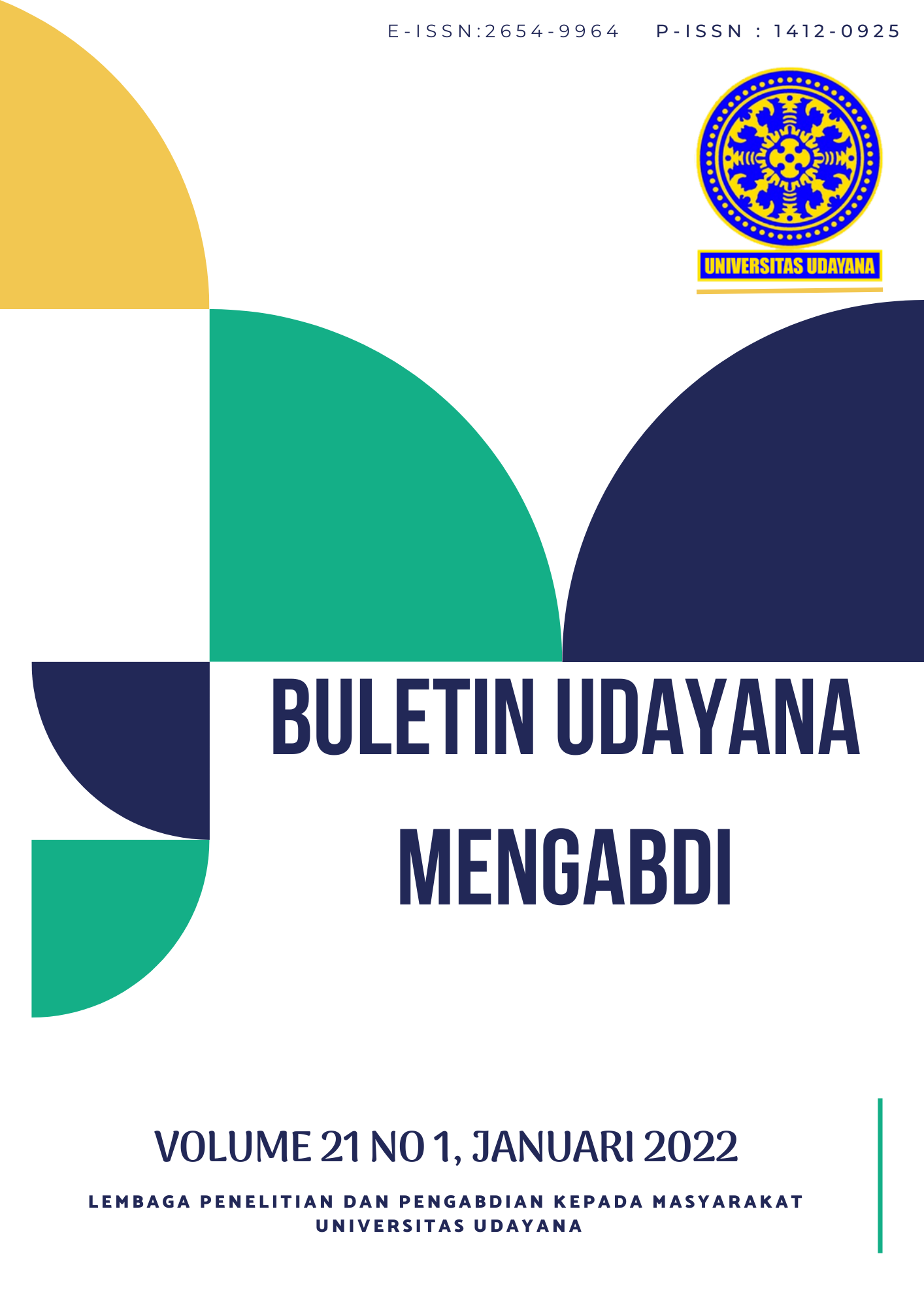PENGURANGAN PEMAKAIAN SAMPAH PLASTIK SEKALI PAKAI BAGI GENERASI MUDA MELALUI PROGRAM BRING YOUR TUMBLER GOES TO SCHOOL
Abstract
The problem of managing plastic waste that has a significant impact on environmental quality makes this dedication carried out with the aim that the "Bring Your Tumbler Goes to School Movement" can be carried out in order to reduce plastic waste circulating in the community. The results of this dedication that using preliminary research methods, providing socialization and support facilities has proven to have a significant impact in daily life for students of SMP N 4 Marga. This dedication activity has concluded that the “Bring Your Tumbler Goes to School” is following the program’s objectives such as a form of implementation related to the management and reduction of plastic waste as well as strengthening the character and awareness of the younger generation to love the environment by using tumbler instead of using disposable bottles. The meaning of this dedication is to build the character of the younger generation on the importance of loving the environments for our better life.
Keywords: Environment, Plastic Waste, Bottled Water
Downloads
References
Ernis, Y. (2018). Implikasi Penyuluhan Hukum Langsung terhadap Peningkatan Kesadaran Hukum Masyarakat. Jurnal Penelitian Hukum De Jure, 18(4), 477. https://doi.org/10.30641/dejure.2018.v18.477-496
Fuad, M. B. (2020). Tanggung Jawab Negara dan Korporasi Terhadap Kasus Impor Limbah Plastik di Indonesia (Perspektif Konvensi Basel dan Prinsip-Prinsip Panduan Bisnis dan HAM). Jurnal Hukum Lingkungan Indonesia, 6(1), 97–125. https://doi.org/10.38011/jhli.v6i1.90
Krisnawati, D. (2016). Pengaruh Brand Awareness Terhadap Keputusan Pembelian Amdk Merek Aqua (Studi Pada Masyarakat Di Kota Bandung). Jurnal Manajemen Bisnis Krisnadwipayana, 4(1), 30. https://doi.org/10.35137/jmbk.v4i1.30
Laurensius Arliman S. (2018). Eksistensi Hukum Lingkungan Dalam Membangun Lingkungan Sehat Di Indonesia. Jurnal Ilmu Hukum, 5(1), 761–770. https://doi.org/10.5281/zenodo.1683714
Mongabay. (2019). Benarkah Produksi Sampah Plastik Indonesia Terbanyak Kedua di Indonesia. https://www.mongabay.co.id/2019/02/22/benarkah-produksi-sampah-plastik-indonesia-terbanyak-kedua-di-dunia/
Prawira, C. Y. (2017). Pelaksanaan Surat Edaran Kementerian Lingkungan Hidup Dan Kehutanan Nomor: Se. 8/Pslb3/Ps/Plb. 0/5/2016 Tentang Pengurangan Sampah PlastikMelalui Penerapan Kantong Belanja Plastik Sekali Pakai Tidak Gratis di Kota Bandar Lampung. Jurnal Hima Han, 4(1), 5.
Randang, F. (2009). Membangun hukum nasional yang demokratis dan cerdas hukum. SERVANDA Jurnal Ilmiah Hukum, 3(5), 1–11.
Riski, P. (2012). Aktivis Lingkungan Surabaya Serukan Batasi Pemakaian Kantong dan Botol Plastik. VOA Indonesia. https://www.voaindonesia.com/a/aktivis-lingkungan-surabaya-serukan-batasi-penggunaan-kantong-plastik-dan-botol-air-minum-kemasan-138584189/104335.html
Susanti, P. D., & Ardhana, A. (2013). Pengelolaan Sampah Terpadu Dengan Prinsip 7R Untuk Mendukung Pembangunan Berkelanjutan. Universitas Lambung Mangkurat Perss, Februari, 114–121.
Undang-Undang Dasar Negara Republik Indonesia Tahun 1945.
Undang-Undang Republik Indonesia Nomor 18 Tahun 2008 Tentang Pengelolaan Sampah, Lembaran Negara Republik Indonesia Tahun 2008 Nomor 69, Tambahan Lembaran Negara Nomor 4851.
Peraturan Menteri Negara Lingkungan Hidup Nomor 13 Tahun 2012 Tentang Pedoman Pelaksanaan Reduce, Reuse, Dan Recycle Melalui Bank Sampah, Berita Negara Republik Indonesia Tahun 2012 Nomor 804.
Peraturan Gubernur Nomor 97 Tahun 2018 tentang Pembatasan Timbulan Sampah Plastik Sekali Pakai

This work is licensed under a Creative Commons Attribution-ShareAlike 4.0 International License.

This work is licensed under a Creative Commons Attribution-ShareAlike 4.0 International License.




.png)


1.png) GARUDA - GARBA RUJUKAN DIGITAL
GARUDA - GARBA RUJUKAN DIGITAL



